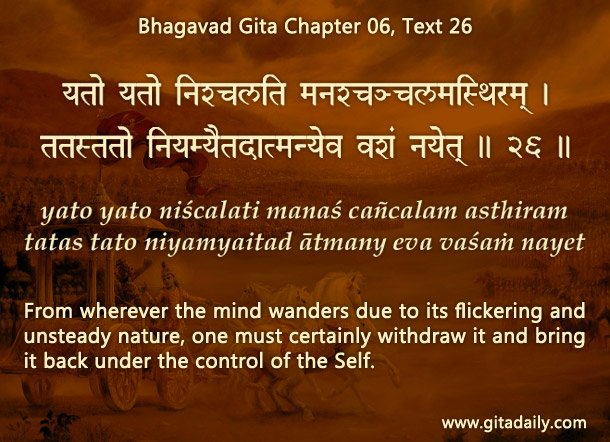Suppose a horse-rider becomes inattentive about controlling the horse. If the horse gets attracted by some fruit on the side of the road, it starts charging in that direction. The more it runs, the more it gains momentum, and the more difficult it becomes for the rider to regain control. Inattention makes the controller the controlled – and the rider gets dangerously thrown off the wildly running horse.
We are souls who are riding on our horse-like mind. When the mind starts contemplating some sense object, it soon becomes infatuated. It starts running towards that object and takes us along. That is, we accept the mind’s desire as our desire and start dreaming about enjoying that object. As the desire grows to a craving, the mind gains momentum and becomes increasingly uncontrollable. Once the mind becomes our controller, it drags us towards self-defeating indulgences.
Of course, the rider who has been thrown off the horse can still alight it and regain control. Similarly, even if we fall down, we can still rise and limp our way back to a principle-centered life. But falling and rising involves danger, disgrace and degradation – all of which can be avoided by timely vigilance.
Pertinently, the Bhagavad-gita (06.25) recommends that we use our intelligence sustained by conviction to focus our mind on the self. We are eternal parts of Krishna, the all-attractive supreme. So, our highest self-interest is in establishing a devotional connection with him. Therein, we access higher happiness, which makes lower pleasures less alluring. With such caution and connection, whenever we notice the mind wandering in dangerous directions, we pull it back (06.26) and focus it on Krishna’s service.
By remembering that the mind will control us if we don’t control it, we can cultivate the vigilant intelligence and diligent devotion necessary to keep it under control.
To know more about this verse, please click on the image
Explanation of article:

Podcast:


only stoic could control the mind (STHITA PRADNYA)